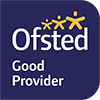Maths
Mathematics teaches our children how to make sense of the world around them through developing their ability to calculate fluently, reason and solve problems. It helps children to understand relationships and patterns in both number and space in the world around them.
Through their growing knowledge and understanding, children learn to appreciate the development and application of mathematics. It is essential to everyday life; critical to science, technology and engineering; and necessary for financial literacy and in most forms of employment.
At Mountbatten we follow a Maths mastery approach. We reinforce an expectation that all pupils are capable of achieving high standards in mathematics with the vast majority of pupils making progress through the curriculum content at the same pace. Differentiation is achieved by emphasising deep knowledge through questioning, individual support and intervention.
Teaching is underpinned by methodical curriculum design and supported by carefully crafted lessons and resources to foster deep understanding.
Below are some policies you may find useful:

“Senior leaders, alongside the multi-academy trust, have provided subject leaders with training.”

“Pupils say they feel safe in school.”

“Leaders and teachers make regular checks to see how well pupils with special educational needs and/or disabilities (SEND) are doing.”

“The school is calm and orderly. Pupils walk around school sensibly and are courteous to one another.”

“Teachers appreciate the support they receive from subject leaders to help them improve their teaching.”

“Pupils listen carefully to what adults say. They join in class discussions enthusiastically.”

“Pupils enjoy attending school.”

“Curriculum plans are well sequenced.”

“Pupils access a range of visits and activities beyond their own experiences.”

“Pupils enjoy learning about a wide range of subjects.”

“Pupils recommend the school to their friends.”

“The early years environment is inviting and well organised.”

“Leaders work well
with members of the multi-academy trust to support staff.”

“Staff work closely with professionals from external agencies to provide support for pupils with SEND.”

“Teachers who are new to the school welcome the support they receive.”

” Some teachers check carefully to find out which pupils are stuck and which pupils need further challenge during lessons.”

“The residential visit to Robinwood encourages pupils to experience new challenges and work collaboratively with their friends.”

“Adults help pupils who fall behind.”

“There is a clear focus on the teaching of early mathematics and reading.”

“There are respectful relationships between adults and pupils.”

“Children start to learn to read as soon as they enter the school.”

“Children settle into school quickly.”

“Pupils learn how to keep safe when using the internet.”

“There are a wide range of school clubs.”

“Subject leaders are knowledgeable about their subjects.”

“Leaders have considered what pupils might need to know to broaden their understanding of the world around them.”

“There is a strong team culture within the school.”

“Pupils say that behaviour is good.”

“Staff encourage
pupils to be independent from an early age.”

“The school enjoyed recent success when the computing club won a local area competition using their coding skills.”

“Staff are well trained in teaching children to read.”

“Pupils support each other well when they are completing their work.”

“The ‘Mountbatten 50’ challenges pupils to complete a range of interesting activities
before they leave the school.”

“Teachers check what pupils have learned and remembered each term.”

“Staff welcome the highquality training they receive. They feel proud to work in the school.”

“Leaders have thought carefully about the curriculum plans they have introduced.”



